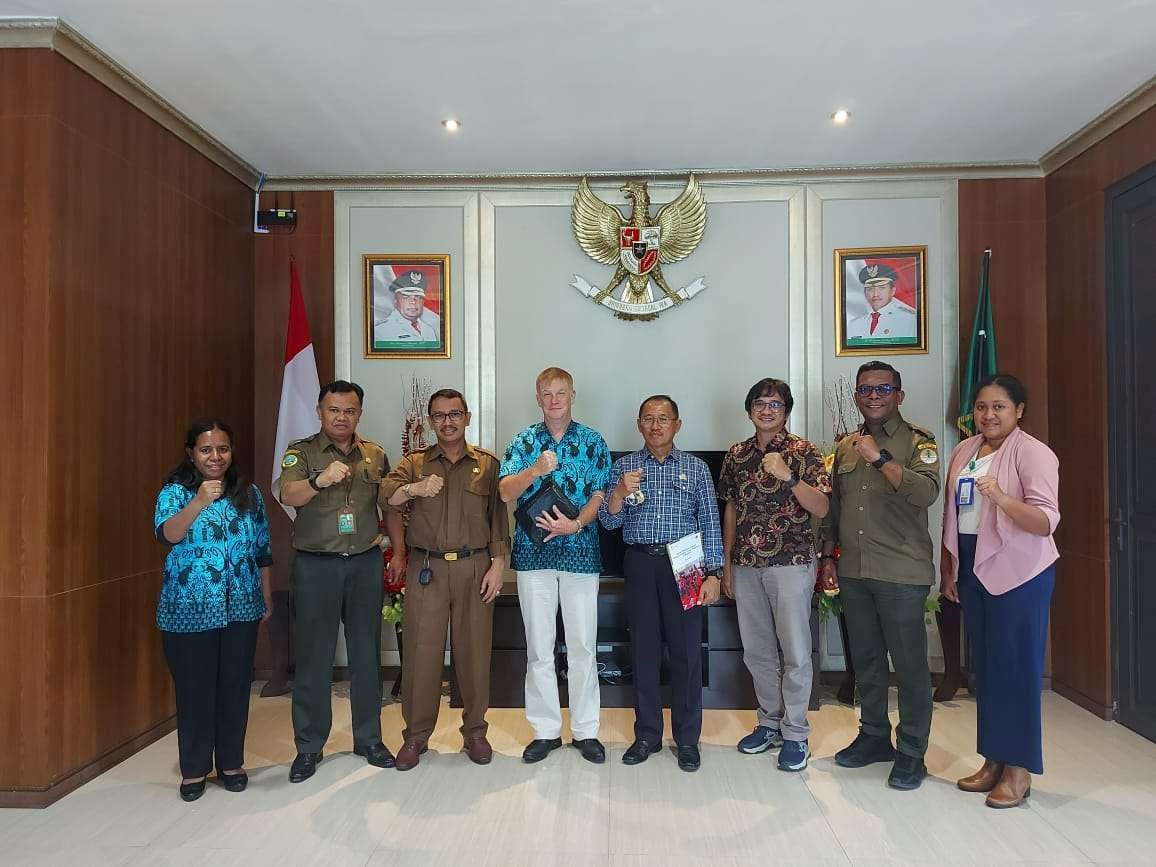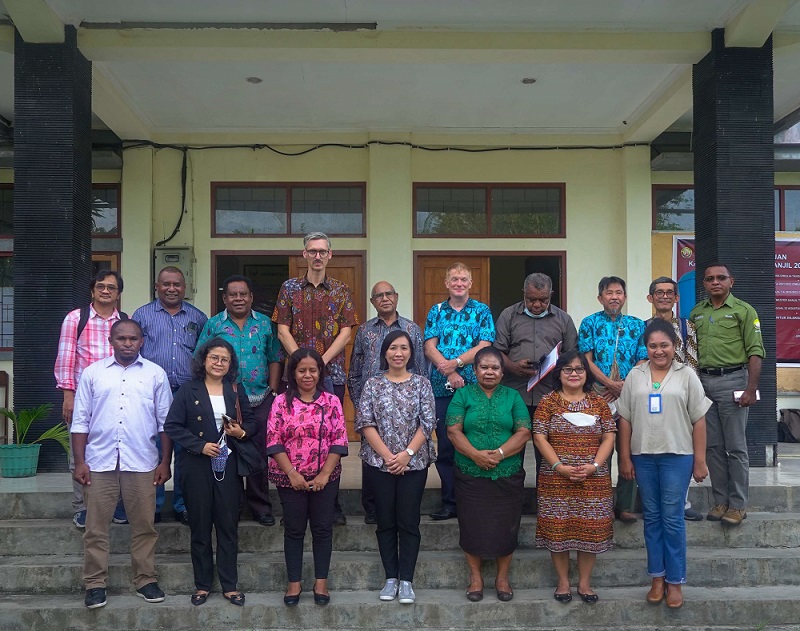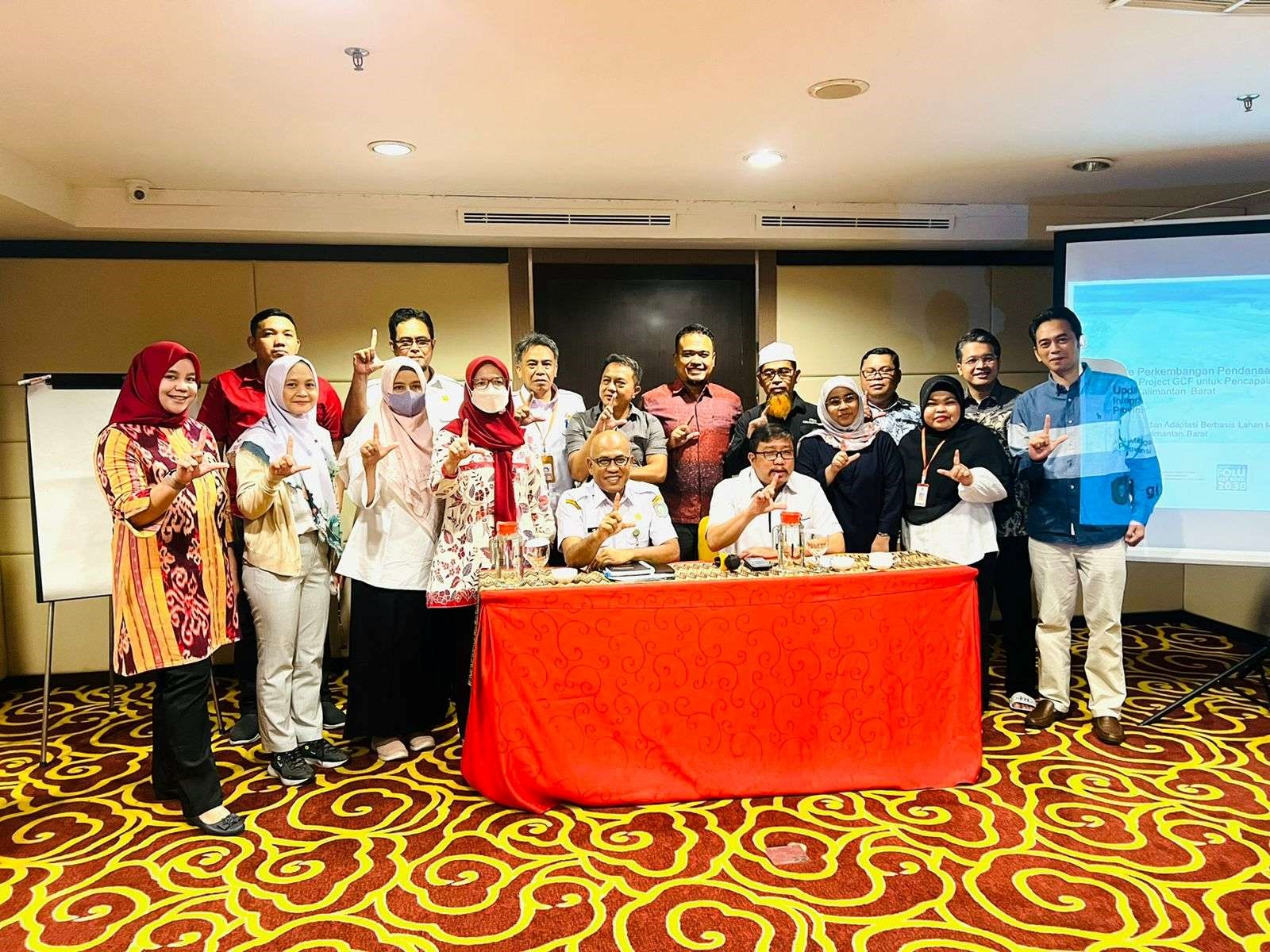FORCLIME
Forests and Climate Change ProgrammeTechnical Cooperation (TC Module)

Select your language

As the largest wetland ecosystem on the island of Papua, the Wasur National Park has an important role to play and requires adequate maintenance. This maintenance encompasses support from and the involvement of other parties as a part of the national park’s management. In an effort to coordinate with the Regional Government of Merauke Regency, the Wasur National Park held a coordination meeting on 15 August 2022, which was opened by the Deputy Regent of Merauke, Mr. H. Riduan, S.sos., M.Pd. and which was also attended by the Secretary of Merauke Regency, Mr. Ruslan Ramli.
During the meeting, the Head of the Wasur National Park outlined the progress that had been made in terms of the recent activities that have been carried out in the national park area, including some that were supported by FORCLIME. Furthermore, the head also expressed the need to strengthen the Wasur National Park Management Collaborative Forum (FKPTNW) and its role of encouraging communication and coordination between parties in order to support the management of the national park. In this regard, the establishment of Merauke Regency as a new center of government for South Papua Province means that pressure on the Wasur National Park will undoubtedly increase even further.
During the meeting, the Deputy Regent of Merauke Regency explained that the FKPTNW could be strengthened after the various processes involved in the establishment of South Papua Province had been completed. In this regard, the goal is to ensure that new FKPTNW members are policymakers who will be able to play a role in supporting the management of the Wasur National Park.
In the wake of the meeting, there will be a series of follow-up meetings that will address the revitalization of the FKPTNW. The hope is that it will be able to play a major role in supporting more effective management of the national park while remaining focused on the welfare of the local indigenous peoples through the sustainable use of non-timber forest products.
For more information, please contact:
Theodora F. Resubun, Advisor for Sustainable Forest Management and Coordinator for Papua Province
Mohammad Sidiq, Strategic Area Manager for Sustainable Forest Management and Coordinator for Papua and West Papua Provinces

GIZ through the Forests and Climate Change Programme (FORCLIME) has been working in synergy with the University of Ottow Geissler Papua (UOGP) since 2021. Activities undertaken to date include the development of a Spatial Data and Mapping Management Center, the development of the Nyei Toro Forestry Education and Training Forest (Hutan Diklat) and an internship program for UOGP students. In terms of the Spatial Data and Mapping Management Center, FORCLIME has prepared an overall concept document for the institution, undertaken an analysis of education and training requirements based on the identification of training needs, and has also examined a number of suitable training methods that should hopefully be able to increase the capacities of UOGP lecturers in the future.
In order to catch up with developments relating to this ongoing synergy, the Country Director of GIZ Indonesia, ASEAN & Timor Leste and the German Embassy, accompanied by the FORCLIME Team, visited the University of Ottow Geissler Papua in Jayapura, Papua Province on 13 August 2022. The delegation was well received by UOGP Vice Chancellor, George M. Satya, M.Sc., Ph.D., and the meeting was also attended by the Dean and Deputy Dean from the Faculty of Agriculture, Forestry and Marine Affairs (FPKK), as well as the FPKK Forestry Study Program. Also present were two representatives of the Necheibe Customary People, specifically Mr. Daniel Toto and Mrs. Orpa Nari, one of Woman Leaders of the Papuan People's Assembly of Papua Province.
Recent progress in terms of the development of the Nyei Toro Education and Training Forest includes the drawing up of a Decree of the Jayapura Regent, which gives the Education and Training Forest official legitimacy. Moreover, the UOGP team is currently preparing a document for further review by the Legal Bureau of the Jayapura Regency Regional Secretariat.
Recently, the University of Ottow Geissler through the Forestry Study Programme finished work on a management plan for the Nyei Toro Education and Training Forest as a follow-up to the Free, Prior and Informed Consent (FPIC) process which was implemented back in November 2021.
In 2022, the University of Ottow Geissler Papua and FORCLIME agreed that two students would undertake an internship at FORCLIME for a period of six months through the Independent Learning Independent Campus (Merdeka Belajar Kampus Merdeka) scheme.
For more information, please contact:
Ruben Yogi, Junior Adviser for GIS and Forest Mapping
Mohammad Sidiq, Strategic Area Manager for Sustainable Forest Management and Coordinator for Papua and West Papua Provinces

West Kalimantan is an Indonesian province that has a strong commitment to achieving its emissions reduction targets. Currently, the Provincial Government of West Kalimantan is in the process of obtaining funding for the Green Climate Fund (GCF). The GCF project has been designed as one of the planned funding sources for the financing of climate change actions, as outlined in the West Kalimantan Provincial Action Plan. The GCF project proposed by the Provincial Government of West Kalimantan together with GIZ, as an accredited institution, is currently in the preparation of a financing proposal and feasibility study stage. This GCF project planning is set to be integrated into efforts to achieve the commitment and contribution of the West Kalimantan Provincial Government in terms of net carbon sequestration for the forest sector and land use targets that Indonesia has promised to achieve by 2030 or earlier, known as Forestry and Other Land Uses (FOLU) Net Sink 2030.
As a result, the West Kalimantan Provincial Environment and Forestry Service (Dinas LHK), supported by FORCLIME, held a recent meeting in order to discuss the design of the GCF project and its integration into the achievement of the FOLU Net Sink 2030 target. The meeting was held at the Environment and Forestry Office in Pontianak on 3 August 2022 and was opened by the Head of the LHK Office of the West Kalimantan Provincial Government, Ir. H. Adiyani, MH, and was attended by representatives from provincial government agencies, academics and NGOs operating in West Kalimantan.
The follow-up to this meeting involves the preparation of a GCF project proposal that will be integrated into the West Kalimantan Province FOLU Net Sink Operational Plan for 2030.
For more information, please contact:
Jumtani, Advisor for Sustainable Forest Management and GCF Focal Point
Wandojo Siswanto, Strategic Area Manager for Forest Policy and Climate Change
 |
Supported By: |
  |